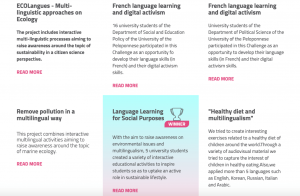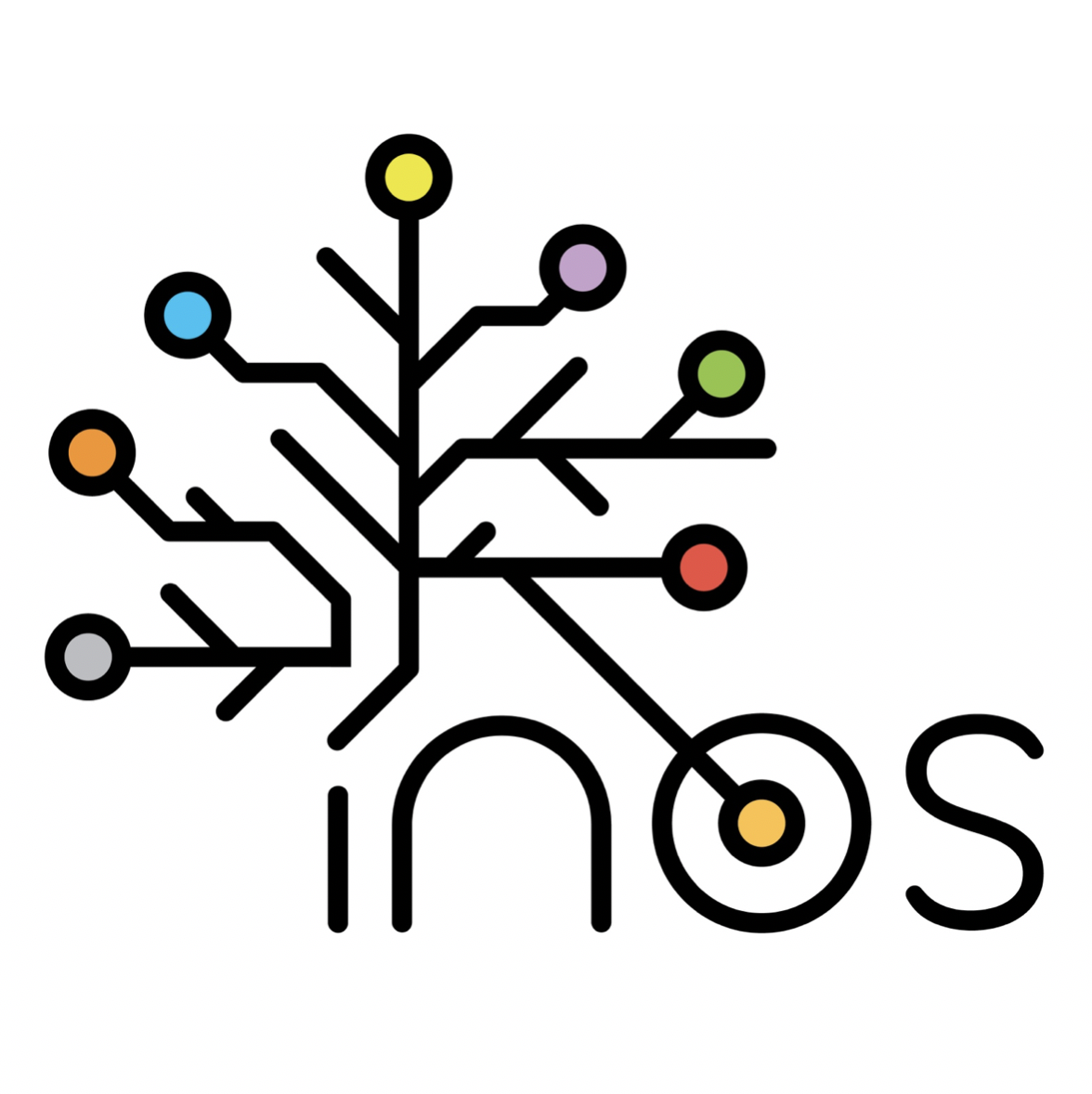30 Nov A hackathon for university students on various dimensions of citizen science
A hackathon for university students on various dimensions of citizen science was organised by Web2Learn for the INOS project in November 2020. The hackathon with the title “Put language learning to the service of a social purpose!” took place within DigiEduHack, which is a series of offline and online hackathons happening all around the world for two days, focusing on co-creating the future of education in the digital age.
Starting point of the hackathon
Citizens locally and globally are increasingly committing to social actions (climate change, anti-harassment, anti-corruption, etc). These actions can take many forms and are enhanced by digital technologies (social networks, sensors, open collaboration spaces, etc.). In these citizen-enhanced actions participants are highly motivated, self-organised and committed to the common goal; yet the potential is very little explored in the language education sector, where sometimes motivation to learn a foreign language may be missing. This hackathon served to offer solutions in the language education field by building on citizen science as a form of social participation.
Scope of the hackathon
The scope of the hackathon was to bridge language education (namely language learning and teaching) with citizen science as a form of social participation.
Target groups and objectives per target group
The hackathon had three different target groups:
- University students learning foreign languages at their university. The objective was to raise awareness about citizen science as a form of social participation during the language class, namely to explore resources on citizen science and produce a short text in the target language (French).
- University students studying to become language teachers. The objective for this group was to give students the possibility to create pedagogical resources for language learners that target communicative skills and also active citizenship skills of the learners, as citizen science is a method to foster citizenship.
- Self-registered volunteers that learnt about the hackathon through our communication events.
Participating universities
Students at the University of the Peloponnese belonged to target group A. They were from the Department of Political Science and the Department of Social and Education Policy. Students at Aristotle University of Thessaloniki were in target group B. The students belonged to two cohorts: those carrying out Bachelor studies at the School of French Language and Literature, and those carrying out a Master’s degree on the Interdepartmental postgraduate studies programme, “Languages, Communication and Management of Educational Services in a modern social, economic and technological environment”.
Work method
We used Slack for small group (4-5 person) collaboration; due to the exclusively remote modality we extended the duration of the hackathon to 7 days, from 10 to 17 November. Each group was expected to release a Solution (see next section). The winning team received vouchers of 50 euros for each team member for a Greek bookstore.
Host and jury
Katerina Zourou, Web2Learn, was the host of the event. Our external jury member was Associate Professor Anthippi Potolia, University Paris 8, France
Solutions
6 solutions (results of group work) have been submitted on time:

- The Multilingual Nature Explorers [winning team]. (students at Aristotle University of Thessaloniki): Anastasia Vasileiou, Stelina Tsoukareli, Sofia Natsiou, Eirini Poursanidou, Katerina Karageorgiou
- Plurilingual Marine Rescue [2nd place]. (students at Aristotle University of Thessaloniki) Douvana Sofia-Ifigeneia, Dimitriadou Eui, Nerantzaki Effie, Papazoglou Zoe
- “Healthy diet and multilingualism“. (students at Aristotle University of Thessaloniki): Anna-Maria Avgerou, Sofia Ioannidou, Chrysa Kornaraki, Evangelia Liaska, Aspasia Tsatsaroni
- ECOLangues – Multi-linguistic approaches on Ecology. Sofia Madentzoglou, Natalia Koutsougera, Christa Lazaridou, Efstathia Voulkidou.
- French language learning and digital activism. Students of the Department of Social and Education Policy of the University of the Peloponnese produced short texts in French based on offered resources on citizen science in French language
- French language learning and digital activism II. University students of the Department of Political Science of the University of the Peloponnese produced short texts in French based on offered resources on citizen science in French language

